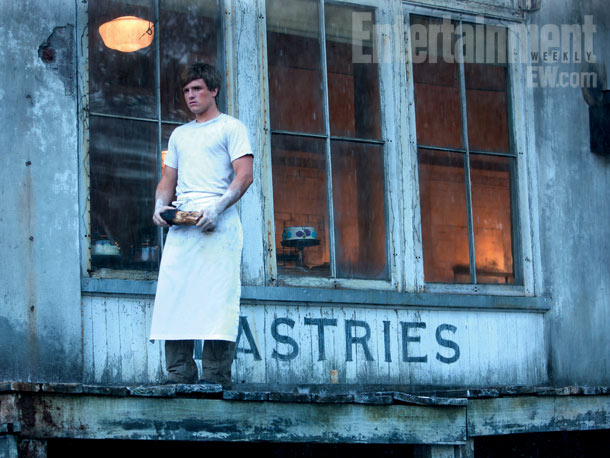
guest post by: Jeremy Snyder
(spoiler alert)
Many reviewers have addressed the shortcomings of the Hunger Games film in terms of its watered down brutality. For example, this audition piece of the Rue death scene showcases the kind of emotional depth the film should have provided. By downplaying the kid-on-kid slaughter-fest and retelling the love tragedy between the two lead characters as a cliched romance, the filmmakers have unconsciously become the objects of their own satire. I cannot help but think the irony is lost on them.

The film, and the popular book by Suzanne Collins on which it is based, is set in a post-apocalyptic future in which the remnant of the United States is divided into twelve fenced-off districts ruled by a totalitarian Capitol. Each year, to remind people of its limitless power and the danger of rebellion, the Capitol drafts via lottery two children per district to star on a reality television show in which the object is to kill all the other kids before they kill you. Out of 24 children, only one will live, and the hero among them is Katniss, who volunteers for the games in place of her little sister. The other kid from her district, and her supposed love interest in the arena, is Peeta, the baker’s boy who once saved Katniss from starvation by sneaking her a loaf of bread from the family shop.

Right before the start of the games, Peeta announces during the televised pre-game interviews that he is in love with Katniss, though she never knew it. Katniss, knowing she will have to find a way to kill Peeta if she is to survive the games, despises what she sees as Peeta’s clever attempt to sell a sympathetic story with the viewers. This becomes a major plot device, both in the book and the film, that survival in the games requires well-timed gifts, such as water or medicine, parachuted in by wealthy sponsors. To get sponsors, you have to be likeable. Peeta is charming and charismatic, while Katniss is stubborn, naive, and suspicious.

Throughout the book, Katniss waffles back and forth wondering if Peeta is plotting to kill or help her, and she blindly assumes his overtures of love are a ploy to generate viewer interest and sponsors. With some nudging from her mentor and former games victor, Haymitch, Katniss gives in to the unwritten rules of the show and pretends to be in love with Peeta, saving both of their lives in the process. When the games are over, Peeta discovers to his utter humiliation and dismay that Katniss was only “acting” in love with him, and now their lives will depend on carrying forward a sham romance to appease the Capitol and prevent the execution of their families. Katniss is stuck as a perpetual heart-breaker, Peeta is stuck pretending to be in love with the girl who he desperately wants to love him in truth, and both will be haunted by dreams of slaughtered children.

The filmmakers (game makers?) sanitized not just the brutality, but the lover’s angst that formed the subjective heart of the story. Like the phony Capitol drama, moviegoers will see an apparently mutual romance between the lead characters. Katniss’s paranoia towards Peeta, and her rejection of him at the end of the story, would probably have made her less likeable, and less marketable, to the hoards of teenage girls who have made the movie such a box office success. I’m sure we’ll all sleep much easier, and buy more movie tickets, knowing that forcing poor kids to murder one another for political control and entertainment is actually not all that bad because true love conquers all…
The book tells a much richer, truer story, which I encourage you to read.














